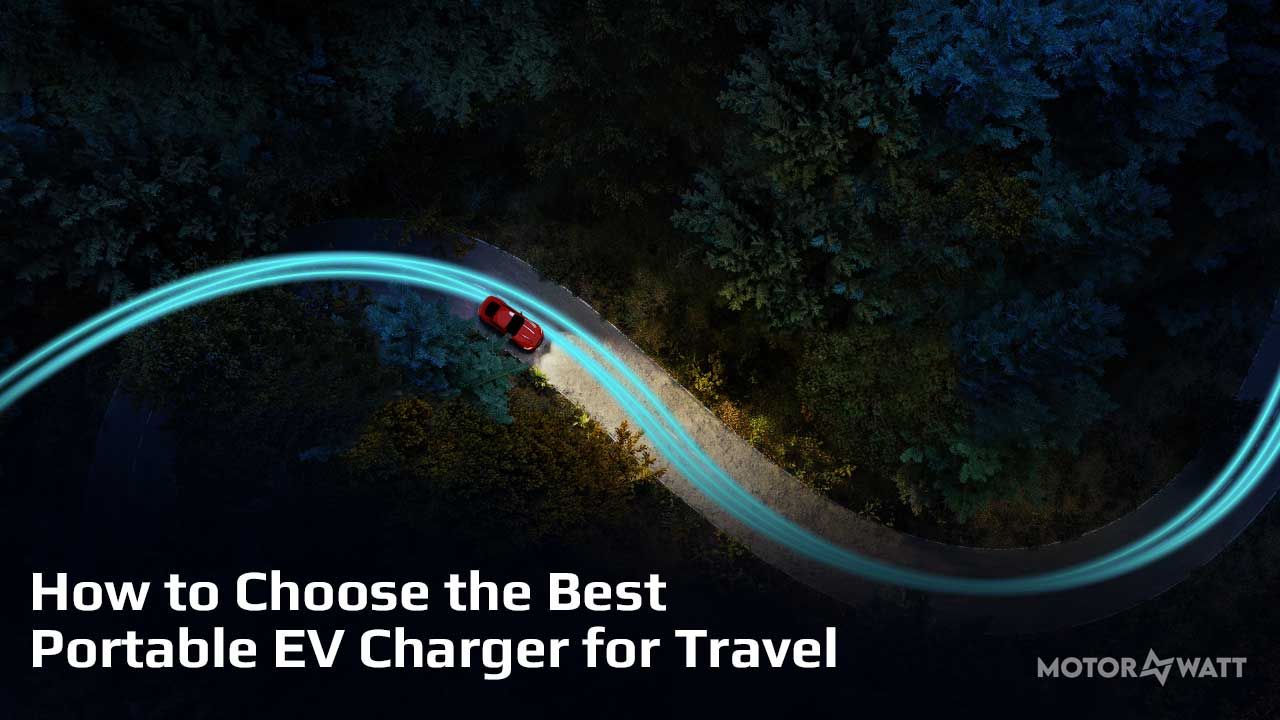How to Choose the Best Portable EV Charger for Travel
Share this article in Social Media:

Ultimate 2025 Guide: From 12-Minute Charging to 350kW Speeds
Executive Summary
The fastest EV chargers in 2025 deliver up to 350kW of power, with Tesla's V4 Superchargers leading the charge. Key findings from our analysis:
- Tesla V4 Superchargers now output 325kW in North America with 350kW capabilities confirmed
- 800V architecture vehicles charge 30% faster than traditional 400V systems
- Real-world charging speeds vary significantly based on battery temperature, state of charge, and vehicle capabilities
- Charging speeds above 80% capacity drop dramatically across all EV models
Understanding EV Charging Speeds in 2025
According to recent industry analysis, charging speed is determined by three critical factors: charger output capacity, vehicle acceptance rate, and battery chemistry. The fastest charging experiences occur when all three elements align perfectly.
Current Charging Technologies Comparison
| Technology | Max Power | Voltage | 10-80% Time | Availability |
|---|---|---|---|---|
| Tesla Supercharger V4 | 350kW | 1000V | 15-20 min | Expanding 2025 |
| Ionity/Electrify America | 350kW | 800V/400V | 18-25 min | Widely Available |
| Tesla Supercharger V3 | 250kW | 480V | 20-30 min | Widespread |
| Level 2 AC | 22kW | 240V | 6-12 hours | Universal |
Fastest Charging Electric Vehicles of 2025
Research from automotive testing organizations reveals that charging speed depends heavily on vehicle architecture and battery management systems. Here are the leaders:
Charging Speed Champions
Step-by-Step Charger Selection Guide
Assess Your Vehicle's Charging Capabilities
Check your EV's specifications: Maximum DC charging rate, voltage architecture (400V vs 800V), and charging connector type. Most 2025 EVs support 150-250kW charging, while premium models like the Lucid Air and Porsche Taycan can accept 270kW+.
Key specifications to verify:
- Maximum DC charging power (kW)
- Charging connector (CCS, CHAdeMO, Tesla)
- Battery voltage architecture
- Charging curve characteristics
Understand Charging Network Coverage
Tesla Supercharger Network: Now supports non-Tesla EVs with adapters, offering the most reliable high-speed charging experience. V4 stations provide up to 350kW with longer cables for all EVs.
Third-party networks: Electrify America, EVgo, and ChargePoint offer 150-350kW charging but with varying reliability rates of 85-95% uptime.
Calculate Real-World Charging Times
Use the charging curve principle: EVs charge fastest from 10-50% capacity, with speeds gradually decreasing to 80%. Above 80%, charging speeds drop to 50kW or less for battery protection.
Example calculation: A Hyundai Ioniq 6 can charge from 10-80% in 18 minutes under ideal conditions, but real-world times typically range from 22-28 minutes.
Consider Future-Proofing
800V architecture is becoming standard: New EVs like the Audi e-tron GT, Genesis GV60, and Kia EV6 support faster charging through higher voltage systems.
Charging infrastructure expansion: Tesla plans to deploy 500kW V4 cabinets by late 2025, while other networks are upgrading to 350kW+ stations.
Evaluate Cost vs. Speed Trade-offs
Pricing structures vary significantly: Tesla Superchargers average $0.28/kWh, while Electrify America ranges from $0.31-0.48/kWh. Premium charging speeds often command 15-25% higher rates.
Time savings calculation: Upgrading from 150kW to 350kW charging saves approximately 10-15 minutes per session, worth $2-5 in opportunity cost for most drivers.
Frequently Asked Questions
2025 Implementation Timeline
Key Charging Infrastructure Milestones
- Q1 2025: Tesla V4 Supercharger deployment accelerates across North America
- Q2 2025: Electrify America completes 350kW network expansion
- Q3 2025: Mercedes and BMW deploy 400kW+ charging stations
- Q4 2025: Tesla introduces 500kW V4 cabinet technology
Key Takeaways for 2025
The fastest charging experience requires matching your vehicle's capabilities with the right charging infrastructure. Focus on networks with proven reliability, compatible connector types, and charging speeds that align with your EV's acceptance rate. Remember that real-world charging speeds depend on battery temperature, state of charge, and ambient conditions – not just advertised peak power ratings.

